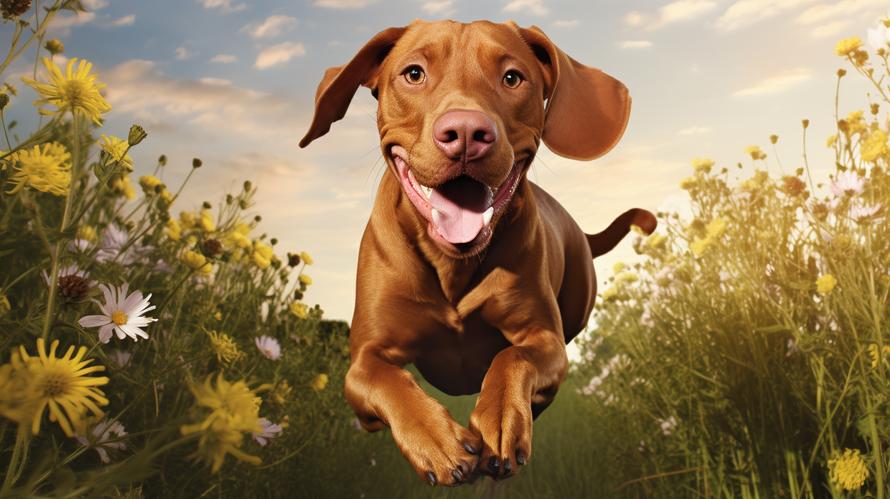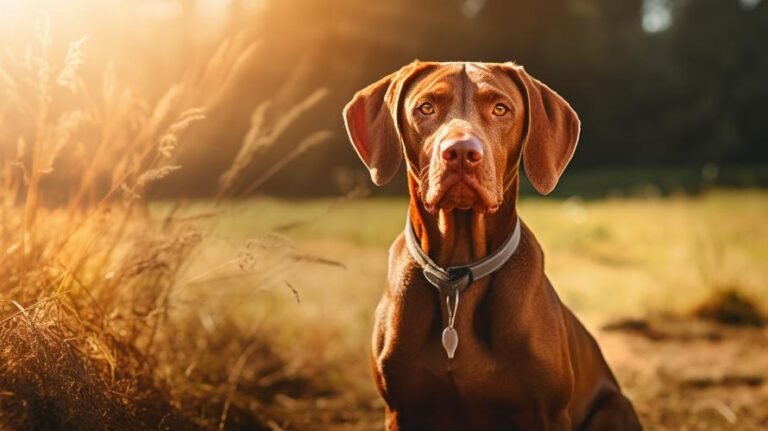Did you know that Vizslas were once reserved only for Hungarian nobility? True story! These regal dogs are renowned for their passion for activities, their intelligence, and their innate abilities as companions. Because of their exercise needs and high metabolic rate, giving them suitable and well-balanced meals is crucial. And speaking of meals, a burning question that plagues many Vizsla owners is, should these precious pets eat grain-free?
Now, you might be wondering why that’s even a topic. You see, in the pet world – especially in the past decade – there’s been a rising trend of “grain-free diets”. Celebrity endorsements, Instagram influencers, and speak-of-the-town pet food brands are all advocating this health ‘revolution’. A barrage of posters, ads, and persuasive sales pitches have convinced many a pet owner that a grain-free diet equates a healthier pet. However, is this universal truth or exclusive myth?
First of all, let’s get one thing straight – our lovely Vizslas are not grain-intolerant by default. Dogs, unlike their wolf ancestors, have evolved alongside humans for around 33,000 years. They’ve adapted to our diets quite impressively. Research has even shown that genes involved in starch and glucose digestion are far more active in dogs than in wolves. To put it simply, most dogs can handle grains as part of their diet, and our friendly Vizslas are no exception.
The real crux of the matter, however, lies in the quality of the grains being fed. Not all grains are created equal. Meals prepared with whole grains such as brown rice, quinoa, and barley are a rich source of fiber, essential fatty acids, and proteins that can provide a balanced diet for your Vizsla, assuming of course, they make up a proportionate part of the meal. Highly processed grains stripped of their nutritional value are a different story though – these “filler grains” are often accused of causing allergies, intolerances, and long-term ill-health effects in dogs.
Allergies to grains, while possible, are relatively uncommon in dogs and are often over-hyped. Most food allergies in dogs are caused by animal proteins, not grains. However, each Vizsla is unique, and allergies or intolerances could very well be an issue for some. Symptoms like persistent scratching, inflamed skin, chronic ear infections, and gastrointestinal problems are tell-tale signs of food allergies. If your Vizsla exhibits any of these symptoms, it is recommended that you consult with a vet.
Grain-free diets for Vizslas dramatically rose in popularity a few years ago, but have since received negative attention due to potential links to a condition known as Dilated Cardiomyopathy (DCM). In 2018, the US Food and Drug Administration (FDA) began an investigation into a suspected correlation between grain-free diets and an increased incidence of DCM. While investigations are ongoing, many vets have started advising against grain-free diets unless medically necessary.
While the prospect of DCM is indeed alarming, remember– correlation does not necessarily indicate causation. Nonetheless, it’s always better to err on the side of caution. Upon your vet’s advice, you may choose to avoid diets labeled as “grain-free,” particularly those that heavily feature legumes and potatoes, which have been most commonly related to DCM in dogs.
At this point, you might be thinking this is some serious controversy – but don’t worry, there is a feasible solution. What our four-legged friends need (just like us, really) is a balanced diet. Not solely grain-free or grain-filled but balanced with proteins, carbs, and fats.
Vizslas, being the active breed they are, need high-quality sources of animal-based proteins in their diet. However, this should not deter them from having grains as part of their meal. In moderation, whole grains serve to provide essential nutrients and fibers necessary for your dog’s overall health.
Remember, while this paints a general dietary picture for Vizsla dogs, each furry friend’s needs may vary based on their lifestyle, health, and activity levels. Therefore, it’s always wise to consult a trusted veterinarian or pet nutritionist before making significant changes to your dog’s diet.
At the end of the day, your Vizsla’s happiness, health, and tail wags lie in balanced nutrition that suits their unique needs, grain-free or not. And of course, remember there’s nothing nobler than sharing your home, hearth, and heart with these grand old ambassadors of Hungarian gentry.
So while you race with your lovely Vizsla in the park, play fetch or simply enjoy a peaceful evening cuddle, remember that a well-fed Vizsla is a happy Vizsla – and a happy Vizsla makes for an equally happy dog parent.
In the land of dogs and their diets, remember: balance is the name of the game, and moderation is the winning strategy. Whether going with grain or grain-free, stay smart, stay informed, and keep that Vizsla love burning bright!



